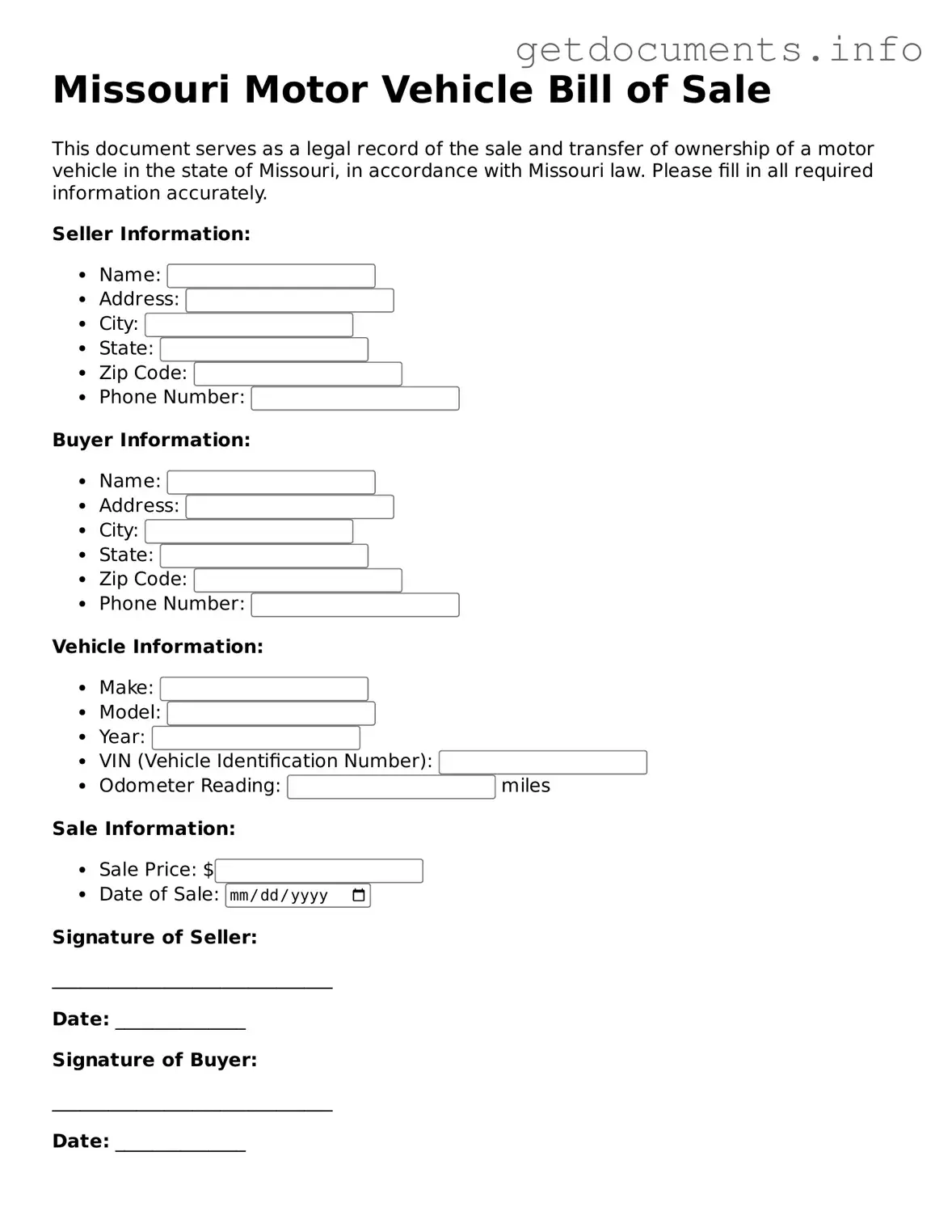Free Motor Vehicle Bill of Sale Template for Missouri
The Missouri Motor Vehicle Bill of Sale is a legal document that records the transfer of ownership of a vehicle from one party to another. This form serves as proof of the transaction and includes essential details about the vehicle and the buyer and seller. Ready to complete your transaction? Fill out the form by clicking the button below.
Access Motor Vehicle Bill of Sale Editor

Free Motor Vehicle Bill of Sale Template for Missouri
Access Motor Vehicle Bill of Sale Editor
Got places to be? Complete the form fast
Fill out Motor Vehicle Bill of Sale online and avoid printing or scanning.
Access Motor Vehicle Bill of Sale Editor
or
⇩ PDF File
